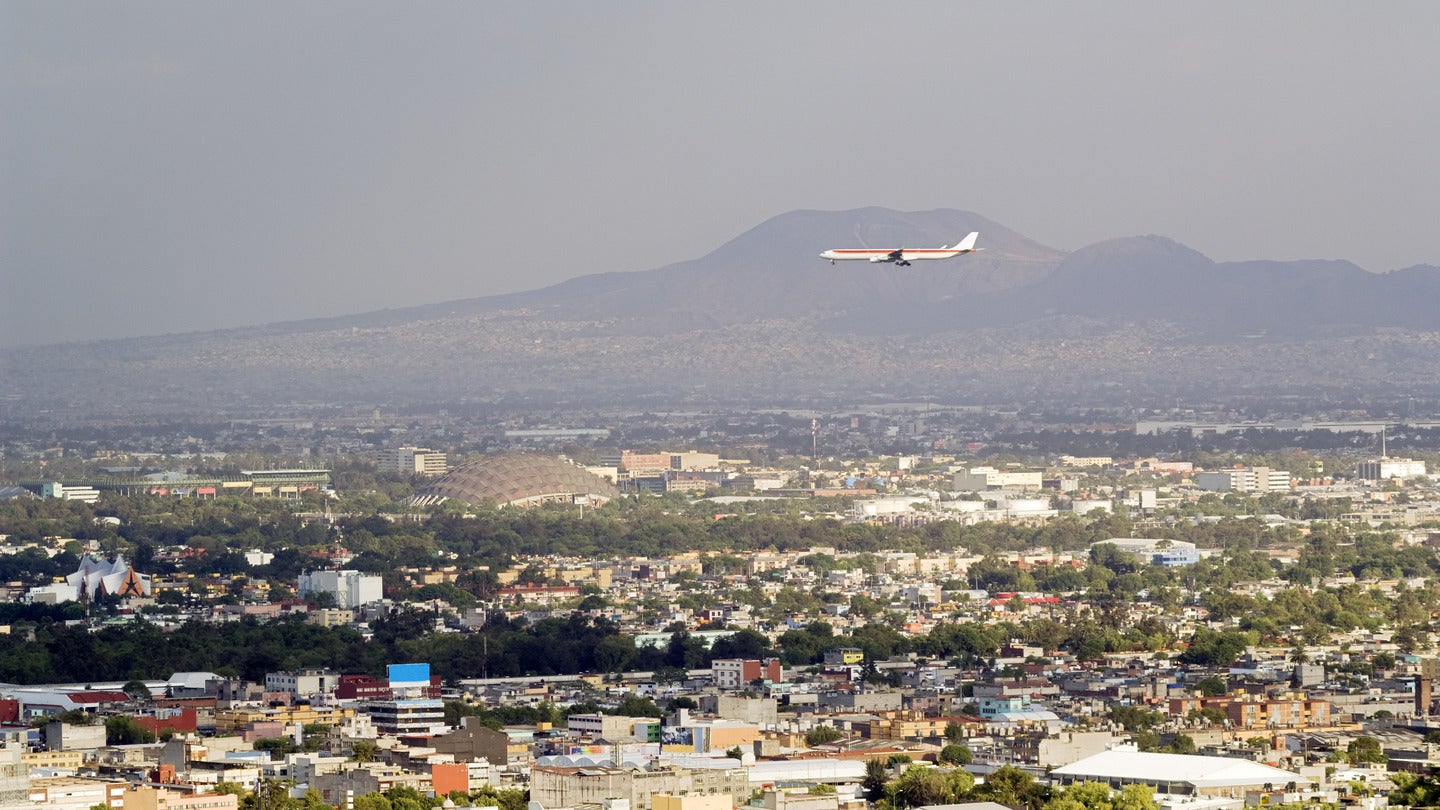
On 10 August, the Mexican government announced that it will launch a military-run airline, following the 815m-peso ($48m) acquisition of defunct airline Mexicana de Aviacion.
The deal came days after Mexican President Andrés Manuel López Obrador signed an agreement to shift operational control of Mexico City’s Benito Juárez International Airport (MEX) and five other airports to the Secretariat of the Navy.
The decision is reportedly due to security concerns around mismanaged airline schedules, luggage theft, business without contracts., drug trafficking and illegal immigration at the named airports, which were “in the hands of organized crime”, according to Rear Admiral Carlos Velázquez Tiscareño, MEX’s 73-year-old director.
Why it matters
Airport security has become an increasingly politicised issue in Mexico since the high-profile US trial of Genaro Luna.
The former Public Security Secretary, who testified that coded messages were sent using internal airport communications to delay baggage inspections so drug shipments could pass through undetected, was convicted of drug trafficking in February.
How well do you really know your competitors?
Access the most comprehensive Company Profiles on the market, powered by GlobalData. Save hours of research. Gain competitive edge.

Thank you!
Your download email will arrive shortly
Not ready to buy yet? Download a free sample
We are confident about the unique quality of our Company Profiles. However, we want you to make the most beneficial decision for your business, so we offer a free sample that you can download by submitting the below form
By GlobalDataDelegating unconventional tasks such as airport operations to the military reflects President Obrador’s inclination for government-owned, tightly regulated services. In April 2022, the President declared Mexico’s valuable lithium deposits national property.
Militarised nationalisation of airport services has raised concerns about a lack of separation between civilian and military life, while subsidised nationalisation of Mexicana de Aviacion has been met with criticism around airline pricing competitiveness.
The detail
Volaris, Viva Aerobus, and Aeromexico have long held a three-way monopoly over Mexico’s runways.
Since the start of the year, Mexico’s three largest airlines have seen a total 16.5% growth in passenger numbers when compared to the same period in 2022. Volaris reported operating revenues of $782m in Q2 2023 – a 13% increase, according to GlobalData.
Mexicana’s revival will see a major national carrier re-enter Mexico’s domestic market later this year following its failed privatisation and bankruptcy in 2010.
Aside from an initial 4m-peso ($235,250) cash boost from the government, Mexicana will also receive ten rented Boeing 737-800s. This will allow the airline to run subsidised flights from September, which the Mexican government has said will be between 18% and 20% cheaper for passengers.
Such competitive pricing is expected to disrupt Mexico’s aviation industry.
By appointing the navy to manage all operations at MEX and other airports, AMLO, as Obrador is known, is attempting to soften unease around safety. This deters both international tourists and Mexicans wishing to travel domestically – a growing post-pandemic trend, with domestic spending and trips rising by 42% since 2021.
Losing such spending would weaken Mexico’s economy, which is heavily reliant on its tourism industry. Transportation accounts for 31% of domestic expenditure and 37% of outbound tourist expenditure, according to GlobalData’s Tourism Source Market: Mexico (2023) report.
There have already been 1,500 uniformed armed service personnel running security at MEX since February 2022.
However, under the new arrangements, the navy will form a new company, Casiopea, which will oversee all airport operations from luggage handling and cleaning to customs and immigration control. The shift is due to take place within the next two months.



